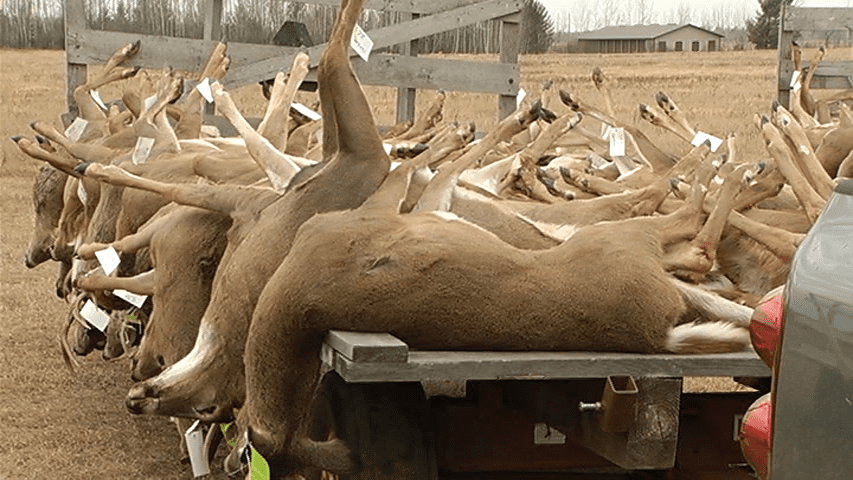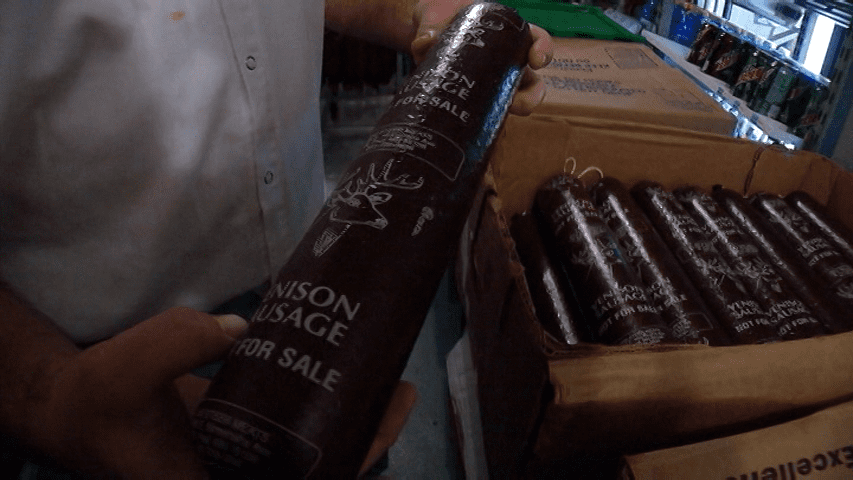The Wisconsin DNR encourages hunters to donate harvested deer

The Wisconsin Department of Natural Resources (DNR) is encouraging hunters to donate Wisconsin-harvested deer. The Wisconsin DNR’s Deer Donation Program, supports Wisconsin residents who are unable to afford food. This program helps stock food pantry shelves with ground venison made from the donated deer.
“There are many individuals that face food insecurity, and the Deer Donation Program is a wonderful opportunity for hunters to help those in need,” said Marcus Rufledt, DNR Wildlife Program specialist. “According to data from the Wisconsin Department of Health Services, more than 900,000 Wisconsin residents received food assistance in 2023. There remains a high demand for the venison this program provides. We hope hunters continue to donate deer and make a difference in their communities.”
The Wisconsin DNR’s Deer Donation Program first started in 2000. Since then, hunters have donated over 98,000 harvested deer, totaling nearly 4 million pounds of venison, to help Wisconsinites in need.

Venison donation partners, land and water conservation departments, food pantries, charitable organizations, USDA-Wildlife Services and participating meat processors, all help administer and implement the program.
For hunters wanting to donate harvested deer to the Deer Donation Program, they should follow these steps:
- Field dress the deer.
- Make sure to register the deer, and when dropping it off, have the registration confirmation number.
- Test the deer for Chronic Wasting Disease, before taking the deer to a processor if harvested from a CWD-affected county. Here’s a list of CWD sampling locations is available on the DNR’s Chronic Wasting Disease Sampling webpage.
- Remember to contact a participating processor before dropping off the deer. If they are at capacity there will be other processors that may be added later on in the deer hunting season.
- If the harvested deer is being tested for CWD, inform the processor and provide the CWD barcode number. The processor won’t distribute the deer until they know the results.
Hunters and non-hunters may also support the Deer Donation Program through a monetary donation at any location that sells hunting licenses or online. Wisconsin’s gun deer hunting season runs from Nov. 23 to Dec. 1.
Lead bullets also have shown to have tiny lead particles or fragments remaining in a portion of the processed meat. Some of the lead fragments may be too small to see during processing, according to the Wisconsin DNR. Although research has not linked lead in venison to affect human health, there are recommendations for hunters to use non-lead ammunition.
Visit the DNR’s Safely Eating Venison webpage for more information and steps to reduce potential exposure. Also WDIO News have several tips and expectations for the deer hunting season.